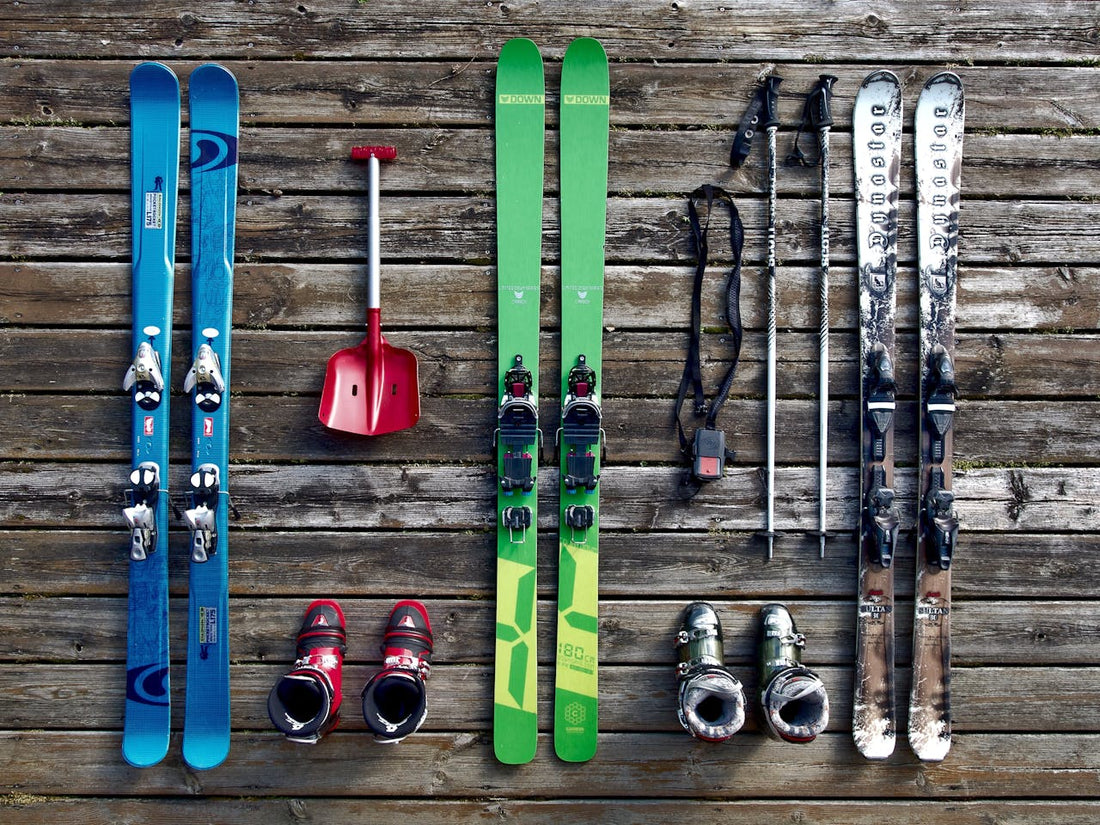
Tips For Safely Storing Your Sports Equipment

Share
Safely storing your sports equipment - whether at home or in a self-storage unit - helps extend its lifespan, maintain performance and protect it from environmental damage.
Whether you're a professional athlete, a weekend enthusiast, or simply managing an active family, storing sports equipment properly is important.
From bikes and skis to tennis rackets and footballs, different types of equipment need different storage methods to keep them in top condition.
This guide will walk you through everything you need to know to keep your sports gear organised, protected, and ready for action, whether you store it at home or in a self-storage unit.
Why Proper Storage of Sports Equipment Is Important
Prolonging The Lifespan of Equipment
Sports equipment is a big investment. Leaving gear improperly stored can lead to wear and tear.
By taking the time to store your items properly, you can extend their usable life and avoid the cost of replacing expensive equipment prematurely.
Whether it's keeping a bicycle free from rust or preventing tennis racket strings from slackening, the proper care and storage of equipment will make sure it stays in good condition for years to come.
Maintaining Peak Performance
When sports equipment is well-maintained, it performs better.
For example, a golf club stored in poor conditions may rust, affecting the balance and performance on the green.
Proper storage keeps your equipment in top shape, ready to perform whenever you need it.
Preventing Environmental Damage
Environmental factors, including humidity, temperature fluctuations, and pests, can wreak havoc on sports equipment.
Rust, mildew, and mould are all threats that can severely damage items if left in the wrong conditions.
Storing your gear in a dry, climate-controlled environment is important, especially for items with metal parts or fabric-based accessories like pads and gloves. Proper storage means your gear stays safe from these potential dangers.
Storage Tips For All Types of Sports Equipment
Clean Before You Store
Before putting your gear away, always take the time to clean it.
Dirt, sweat, and grime can cause long-term damage if left untreated. For example, mud left on a bike can lead to rusting, and moisture trapped in the padding of protective gear can result in mould growth.
Drying equipment fully before storing is particularly important for water sports gear and other items exposed to moisture, as damp conditions can cause damage.
Choose The Right Storage Solutions
Different types of sports equipment needs different storage solutions. A tennis racket will benefit from a wall-mounted holder, while a bike will need a sturdy wall hook or ceiling hoist to free up floor space.
For smaller, loose items like balls, helmets, and pads, clear plastic bins or mesh bags are a great way to keep everything organised and easy to access.
Regular Maintenance
Even when stored properly, sports equipment needs regular maintenance checks.
Make it a habit to inspect your gear for any signs of wear or damage. This includes checking the tension of tennis racket strings, looking for rust on bikes, or ensuring that inflatable equipment like footballs and basketballs are properly inflated.
How To Store Specific Types Of Sports Equipment
Bicycle Storage
Before storing your bicycle, give it a thorough clean to remove any dirt, dust, or grime that could cause damage over time.
Lubricating the chain and other moving parts is important for preventing rust.
For storage, you have several options depending on your available space. Wall mounts and ceiling hoists are great for keeping bikes off the floor and preventing tyres from becoming misshapen.
Floor stands offer a more accessible solution if space allows but ensure your bike is stored in a dry, climate-controlled environment to prevent corrosion.
Skis and Snowboard Storage
After a ski season, make sure your skis or snowboard are cleaned, removing any moisture or salt that may have accumulated.
Applying a protective layer of wax to the base prevents drying out and cracking during the off-season.
When it comes to storage, vertical or horizontal racks are best for preventing warping, and the equipment should be kept in a cool, dry place away from direct sunlight and humidity to avoid rusting on the edges and bindings.
Tennis Racket Storage
Tennis rackets, like many other types of sporting equipment, can be damaged if not stored properly.
After cleaning the racket, check the tension of the strings, as loose strings may need replacing. Using a racket cover helps protect the frame and strings from dust and dirt.
Store your rackets in a climate-controlled area, as extreme temperatures can cause the frame to warp and the strings to lose tension.

Golf Club Storage
Golf clubs should be cleaned after each use, paying special attention to the club heads, which can be scrubbed with a brush and soapy water.
After drying them, inspect the grips and shafts for any signs of wear. Store your golf clubs in a bag with slots for each club, or use a golf club rack to keep them upright and organised.
Avoid leaving them in your car boot, as the fluctuating temperatures can lead to rust and degradation.
Storing Water Sports Equipment
Water sports equipment like kayaks, surfboards, and paddleboards will need special care before storage.
After rinsing the equipment with fresh water to remove salt and sand, dry everything thoroughly to prevent mould from forming.
Store large items on wall racks or ceiling racks to save space, and make sure the storage area is well-ventilated and out of direct sunlight to prevent UV damage, which can degrade materials over time.
Self-Storage Units for Sports Equipment
For those running out of space at home, a self-storage unit can be an excellent option.
When choosing a storage unit for sports equipment, make sure you pick one with climate control to prevent damage.
The Box Co. offers secure, temperature-controlled units that are perfect for storing valuable and delicate sports equipment like skis, golf clubs, and bicycles.
With The Box Co.’s flexible pick-up and delivery service, you don’t even need to worry about transporting your gear. We'll collect your items from your home and return them whenever you need them.
Storing Your Sports Equipment
Storing sports equipment properly not only helps extend its lifespan but also means it’s always ready for use when needed.
Whether you’re storing your gear at home or using a self-storage facility, taking the time to clean, organise, and protect each item will pay off in the long run.
Properly stored equipment performs better, lasts longer, and helps you stay organised.
If you're looking for a secure, convenient solution for storing your sports equipment, The Box Co. has self-storage solutions all over the UK. Get in touch with The Box Co. today to get a free quote.



